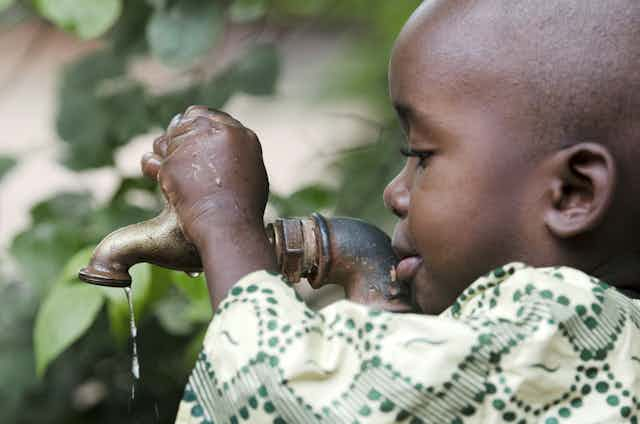There is a severe lack of environmental health data being collected in communities and households in South Africa. As a result of this, environmental health researchers have a significant challenge accessing high quality large data sets.
Many environmental health related diseases such as cholera and diarrhoeal disease can be prevented if scientific evidence is used to teach and encourage people to change their behaviour. But the data should ideally involve thousands of people in a range of locations, followed up for a long period of time.
Collecting environmental health data is a challenge across the world, but it is a bigger problem in developing countries where there are often paper-based data management systems at clinic level that hamper trend detection in some environmental health diseases.
Unless South Africa changes the way it collects and manages data, the country won’t easily pick up short-term problems like pesticide poisoning outbreaks or long-term problems like the impact of climate change on health.
Making data accessible
As a branch of public health, environmental health focuses on the relationship between the environment and human health. Environmental health scientists try to understand how human exposure to environmental risks lead to diseases and illnesses. This then helps inform policy as well as public health prevention messages to ensure people live in safe, healthy environments.
How water is accessed and managed is one example. South Africa is in the middle of one of the worst droughts in decades. When water supplies are erratic or nonexistent, communities start storing more water than usual and finding water from alternative sources.
But environmental health research has shown that water storage containers often become contaminated when one drinks from the scoop or ladle used to decant water. This type of information should then be incorporated into advice given to communities during drought conditions to reduce the spread of disease and infection via water storage containers.
Only a few large environmental health studies have been carried out in South Africa. One example is the Vaal Triangle Air Pollution Health Study. It focused on air quality and health in a specific area to understand the exposure and effects of indoor and outdoor air pollution on children’s health.
Maximising health data
Filling data and knowledge gaps is critical to tackle health problems. There are a number of health surveys that provide nationally representative estimates on a wide range of health issues in South Africa. This evidence is very important and provides information on progress and challenges at a local and national level. But very few of these are focused on environmental health outcomes.
In the first of a series of surveys, the 2012 South African National Health and Nutrition Examination Survey assessed the health and nutritional status of adults and children. It looked at some environmental factors that drive diseases in the South African population and also looked at underlying social, economic and behavioural factors.
There’s also the District Health Barometer. It collects information to monitor progress that can improve health systems organisation and delivery. This enhances the quality of and access to primary health care.
Another is the Health Systems Trust annual reports, which provides some environmental health indicators such as access to drinking water and basic sanitation.
Generally large environmental health studies are constrained by financial resources and capacity. This is why, in most cases, environmental health scientists take up relatively small studies in about 500 to 1,000 households in a community.
The challenge with these studies is that, on occasion, the research findings are not representative of the larger population. This is due to a small sample size or because the necessary variables have not been measured over a long enough time period.
Changing the focus
To have a preventive-focused health service in South Africa, there needs to be a new vision for environmental health data, its analysis and interpretation. One such idea is combining existing databases.
In the UK, the Medical and Environmental Data Mash-up Infrastructure project aims to connect diverse databases to better understand the links between climate, environment and human health. This will be done using the emerging data “mash-up” field of computational science.
Combining existing South African databases through a similar “mash-up” approach will present new challenges and exciting opportunities for researchers. It would provide an excellent platform for scientists to collaborate and debate cross-cutting issues. Big data requires complex preparation and analysis techniques. But it will bring about exciting opportunities to build capacity in this much needed area.
It is a good time to evaluate existing data and plan ahead so that environmental health research can serve everyone in the country.

